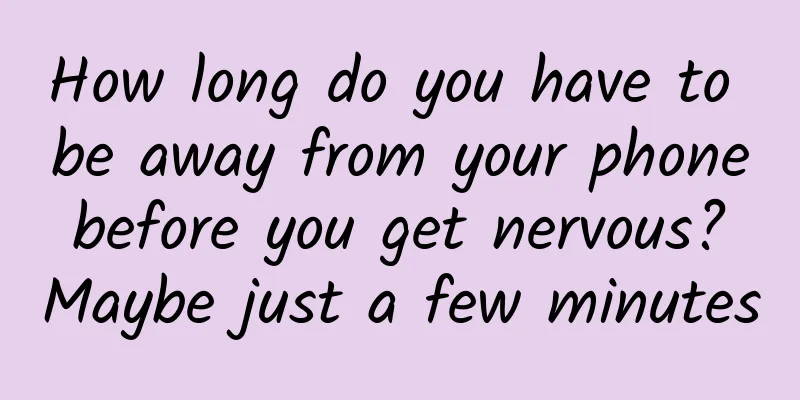How long do you have to be away from your phone before you get nervous? Maybe just a few minutes

|
How long could you go without your phone? Psychologists have found that the answer is probably just a few minutes — at least for people aged 18 to 26. In one study, people who were without their phones were more likely to exhibit "stressful behaviors" than others. When they got their phones back, their stress levels dropped, even if it wasn't their own. The researchers say the comfort provided by mobile phones replaces real human interaction, and they even suggest it is similar to the comfort that babies get from being wrapped in a blanket when they are away from their parents. The research comes from scientists at Eötvös Loránd University in Hungary, and their paper has been published in the journal Computers in Human Behaviour. "Objects can become objects of attachment, like pictures of significant others or toys," said Veronika Konok, one of the authors of the paper. She added: "The phone is special because it is not only very important, but it also represents our other social relationships." The study involved young people aged 18 to 26 who were videotaped and had their heart rates monitored throughout the session. Half of them had their phones taken away and put in a cupboard, and all 87 participants sat alone in a room and were asked to do math problems and puzzles on laptops. There were 3.5-minute breaks between the different activities, during which those without their phones were more likely to wander around the cupboard and show signs of stress, such as an increased heart rate. People without phones were also more likely to be irritable or show signs of nervousness, such as scratching their head, and they reacted more strongly to words that represent separation, such as "separation" and "loss". Veronica believes that young people have a closer connection with mobile phones, "Children who use mobile phones from an early age may have a closer connection with them." The results of this experiment may not be surprising - if your phone dies or you lose even a few minutes of time, you probably feel nervous. This fear of being separated from one’s phone even has a name – nomophobia – and some studies suggest that around four in five young people suffer from it to some degree. As a winner of Toutiao's Qingyun Plan and Baijiahao's Bai+ Plan, the 2019 Baidu Digital Author of the Year, the Baijiahao's Most Popular Author in the Technology Field, the 2019 Sogou Technology and Culture Author, and the 2021 Baijiahao Quarterly Influential Creator, he has won many awards, including the 2013 Sohu Best Industry Media Person, the 2015 China New Media Entrepreneurship Competition Beijing Third Place, the 2015 Guangmang Experience Award, the 2015 China New Media Entrepreneurship Competition Finals Third Place, and the 2018 Baidu Dynamic Annual Powerful Celebrity. |
>>: After the Samsung explosion, Apple's biggest problem is that it has no god-like opponent
Recommend
A must-read for APP marketers: 5 senses and abilities you must master!
I have read many marketing books and found that t...
Analysis of mobile advertising in the skin care and beauty industry in Q1 2019
The first quarter of 2019 has passed. So what are...
Do aerobics once, and your legs will hurt for three days! Live broadcast and practice "failure" is because you didn't do these 3 steps
Recently, influenced by various sports live broad...
What are the functions of Foshan drone mini program? How much does it cost to develop a drone mini program?
With the continuous popularity of short videos, ma...
Things about online game advertising | Insights into information flow advertising data
Online game advertising has a special position in...
Changsha tea tasting service, tea takeaway studio, high-end audition recommended here
185-6916-1745 Micro.Q Synchronization The masseus...
SoftBank's acquisition of ARM: The former found a cash cow and the latter found a backer
Recently, according to foreign media reports, Jap...
Luo Yonghao's Hammer: The low-end model with no physical buttons is only 899 yuan
[[143983]] It was previously reported that the Sm...
How to write a new media marketing promotion plan!
What role does new media marketing play? How to s...
Electric Technology Car News: It’s all about fun! How many performance cars do you know that are still only available with manual transmission in 2017?
With the continuous development of automobile tec...
From the Buddhist country to the human world, what has China’s “tower” experienced?
↑A group of National Geographic fans, focusing on...
With the rapid development of science and technology, what will the world be like in 500 years?
What will the world be like in 500 years? Wheneve...
Why use blogs to promote your website? How to promote your products online?
Blog promotion is a form of Internet promotion, a...
Why can mobile phones count the number of steps we walk?
With the rapid development of science and technol...









